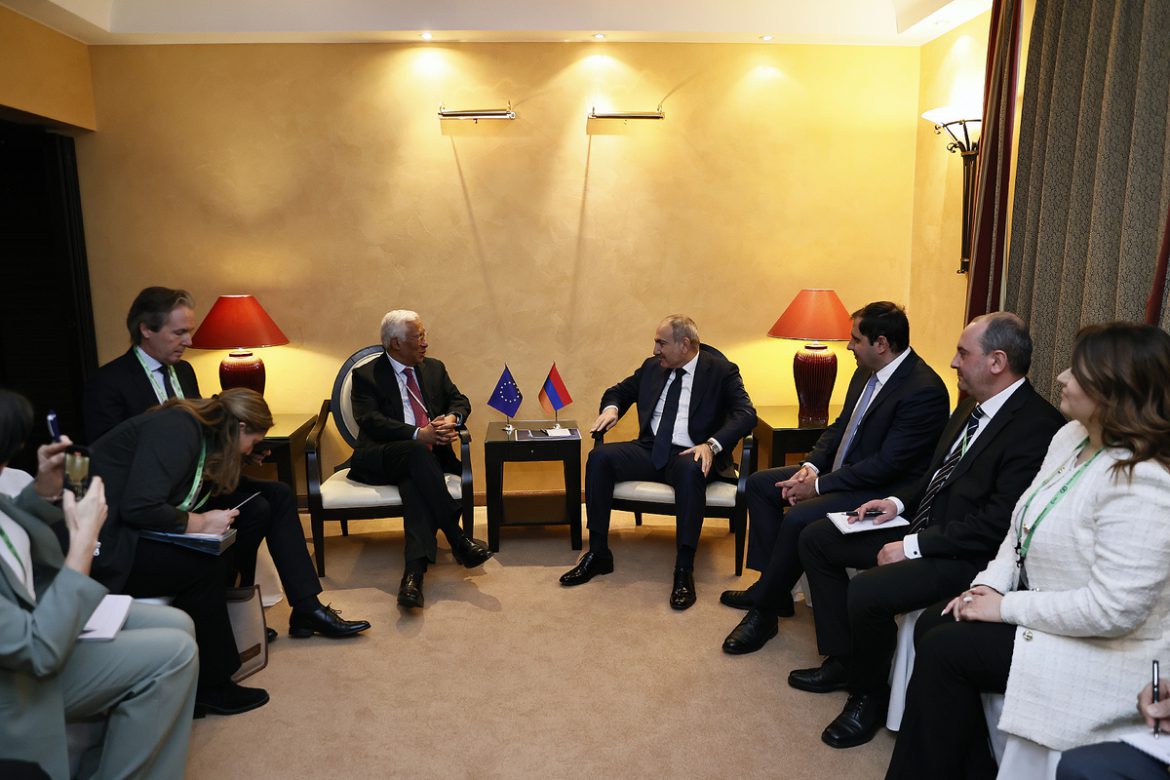Armenian Prime Minister Nikol Pashinyan and his press office remained silent about Armenia’s potential bid for European Union membership during discussions with European Council President Antonio Costa in Munich on Friday.
The meeting occurred on the sidelines of an annual international security forum, just two days after Armenia’s parliament passed a bill supporting the country’s eventual accession to the EU.
Despite the bill’s significance, Pashinyan’s post on X, describing a “meaningful exchange” with Costa, made no reference to the EU membership issue. He stated that they discussed “key issues on Armenia-EU partnership” and efforts to resolve the Armenian-Azerbaijani conflict.
A statement from the Armenian government echoed Pashinyan’s comments, highlighting Armenia’s desire to expand “multi-faceted ties” with the EU. Costa, in turn, expressed the EU’s commitment to “deepening cooperation in all fields.” However, the EU did not issue any statement on the meeting, and Costa did not mention the conversation on his X page.
Pashinyan had previously spoken with Costa by phone on January 13, shortly after his cabinet endorsed the bill calling for the launch of Armenia’s EU accession process. The bill, drafted by pro-Western groups aligned with the government, followed a petition that gathered 60,000 signatures supporting a referendum on EU membership.
However, Pashinyan has insisted that such a referendum should occur only after Yerevan and the EU outline a “roadmap” for accession. To date, no EU member state or the European Commission has expressed formal support for Armenia’s bid.
Adding to the uncertainty, Armenian Deputy Foreign Minister Paruyr Hovhannisyan clarified on Monday that the bill’s passage “does not constitute an application for Armenia’s membership in the European Union.”
Meanwhile, Russia, Armenia’s primary trading partner and energy supplier, has warned that pursuing EU membership could signal Armenia’s departure from the Russian-led Eurasian Economic Union (EAEU).
On Thursday, Russian Foreign Ministry spokeswoman Maria Zakharova accused Yerevan of downplaying the potential economic consequences of such a shift. “Attempts to gloss over this issue or avoid discussing its impact are a denial of reality and mislead the public,” Zakharova stated. She emphasized that it is Yerevan’s responsibility to inform Armenians about the repercussions of pursuing EU membership.
Trade data underscores Armenia’s growing economic dependence on Russia. The EU’s share in Armenia’s foreign trade dropped to 7.5 percent in January-November 2024, down from 24.3 percent in 2017, according to government statistics. In contrast, Russia’s share increased from 26.7 percent to 41 percent over the same period.




